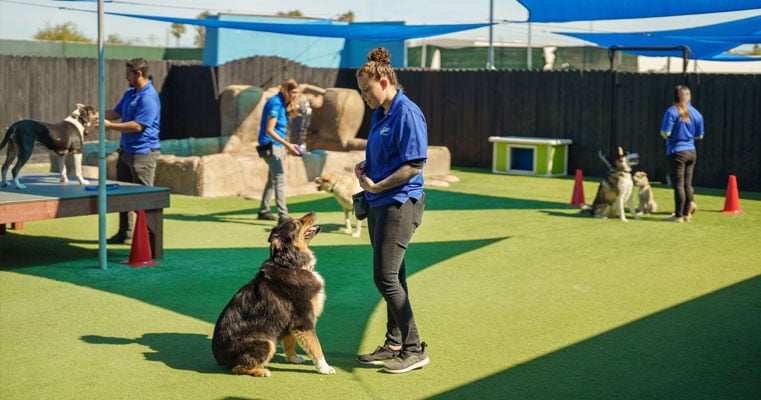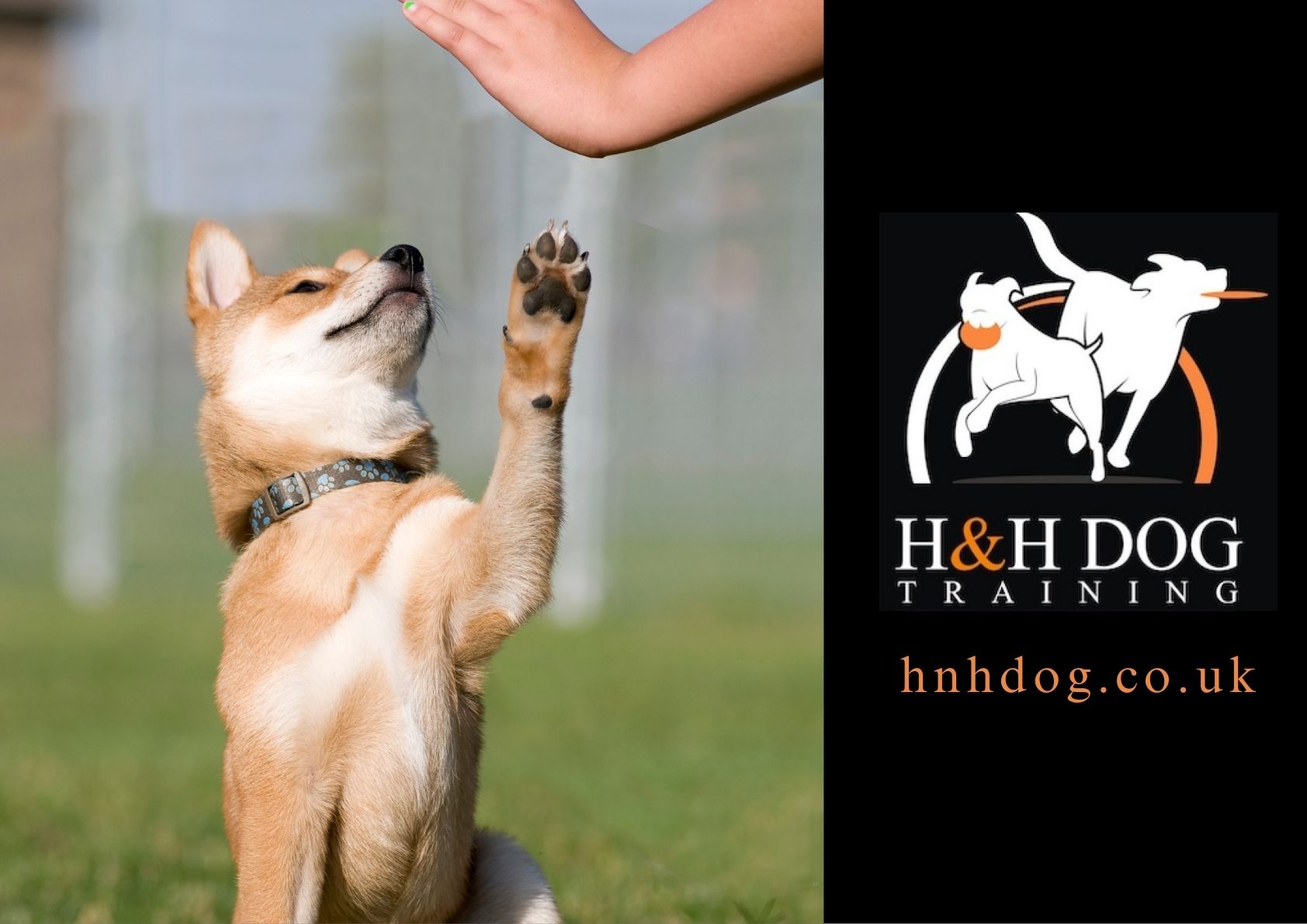Why Consistent Dog Training Is Key to a Happy Pet
Why Consistent Dog Training Is Key to a Happy Pet
Blog Article
The Ultimate Overview to Canine Training: Change Your Pet dog's Behavior
Efficient pet dog training is essential for fostering an unified connection in between family pets and their owners. This guide not just aims to outfit you with the necessary devices to transform your canine's habits however additionally welcomes you to explore just how these fundamental concepts can lead to a deeper connection with your pet.
Comprehending Pet Dog Behavior
Comprehending pet habits is important for efficient training and a harmonious relationship in between canines and their proprietors. A canine's behavior is affected by a combination of genes, atmosphere, and experiences. Dog training. Acknowledging these factors enables owners to customize their training approaches to fulfill the individual requirements of their animals
Pet dogs connect mostly through body language, vocalizations, and faces. A wagging tail can show enjoyment or joy, while a tucked tail may indicate anxiety or entry. Observing these hints allows proprietors to react properly, reinforcing positive actions and resolving adverse ones successfully.
Additionally, recognizing the social structure of dogs can give understandings into their habits. Dogs are pack animals, and they grow in an organized environment. Developing clear limits and constant rules can prevent confusion and advertise a complacency.
In addition, recognizing the natural instincts of pet dogs, such as the urge to dig or chase, is crucial. These instincts can be redirected through appropriate electrical outlets, such as play or exercise. By comprehensively recognizing these behavioral facets, owners can foster a positive training experience, eventually resulting in a loyal and well-adjusted canine buddy.
Vital Training Strategies
Effective canine training counts on a range of important strategies that can dramatically enhance the knowing procedure for both the canine and the proprietor. One essential method is positive reinforcement, which includes gratifying preferable actions with deals with, appreciation, or playtime. This method encourages pets to repeat the behaviors that lead to positive outcomes, fostering a trusting relationship in between the pet dog and proprietor.
One more trick technique is uniformity in expectations and commands. Making use of the same verbal signs and hand signals aids the dog comprehend what is called for, lowering complication and promoting quicker discovering. Furthermore, developing clear limits and regulations is important for reliable communication.
Socializing is additionally a necessary part of training. Revealing dogs to various settings, individuals, and other animals aids them develop proper social abilities and reduces anxiety in strange situations.
Finally, patience and timing are important. Training sessions need to be short yet regular, ensuring that the canine stays involved and receptive. By employing these crucial strategies, owners can create a positive and structured training experience that advertises excellent behavior and reinforces the bond with their canine friends.
Creating an Educating Arrange
Just how can a well-structured training routine boost a canine's learning experience? A training routine provides uniformity, making certain that dogs obtain normal, concentrated direction. This predictability helps dogs recognize what is anticipated of them, strengthening their knowing and enabling much better retention of commands and habits.
When creating a training routine, it is vital to take into consideration the pet dog's age, type, and private personality. Young young puppies may benefit from much shorter, a lot more regular sessions, while grown-up pet dogs may thrive with longer, less regular training periods. Incorporating a range of tasks can also maintain the sessions engaging, stopping monotony and promoting interest for understanding.
In addition, scheduling training sessions at particular times of the day can aid strengthen a regimen. As an example, coupling training with daily strolls or play can create a favorable association with learning. It is additionally essential to include time for reinforcement, such as treats or appreciation, to reward wanted habits without delay.
Last but not least, adaptability is vital. While uniformity is important, being versatile to the dog's state of mind or energy level can boost their discovering experience. A well-crafted training timetable eventually lays the foundation for efficient communication and a stronger bond in between the pet dog and owner.
Typical Training Difficulties
In spite of having a well-structured training timetable, dog proprietors frequently experience various challenges during the training procedure. One common problem is variance in signs and commands. When numerous family participants utilize various terms or tones, a pet might become confused, preventing its capability to discover successfully.
Another frequent challenge is diversion. Dog training. Pet dogs are normally curious link creatures, and outside stimuli such as various other animals, noises, or people can divert their attention throughout training sessions. This requires owners to create a regulated environment or slowly present distractions to reinforce emphasis
In addition, differing power levels can influence training results. High-energy pet dogs might battle to calm down and focus, while a lot more easygoing types could need added motivation to involve. Customizing the training technique to fit the private dog's temperament is necessary for success.

Building a Strong Bond
A solid bond between a go now pet and its proprietor is vital for successful training and general well-being. Dog training. This relationship fosters count on, which is important for reliable interaction throughout the training process. When a dog feels secure and connected to its owner, it is more most likely to respond positively to signs and commands
To develop this bond, uniformity is key. Establishing a routine that includes regular feeding, exercise, and training sessions helps create a feeling of stability. In addition, positive support strategies, such as deals with, appreciation, and play, reinforce desired actions while reinforcing the psychological connection.
Socialization is an additional essential element of bond-building. Revealing your pet dog to different environments, individuals, and various other animals aids them feel extra certain and comfy, enhancing the bond with their proprietor. Taking part in activities together, such as walking, playing fetch, or joining obedience training, promotes synergy and shared satisfaction.
Final Thought

Understanding canine behavior is important for reliable training and an unified relationship between pet dogs and their proprietors.Reliable pet training relies on a range of necessary techniques that can substantially enhance the discovering process for both the proprietor and the pet.Regardless of having a well-structured training timetable, pet dog proprietors frequently experience different challenges during the training process.In verdict, effective pet dog training depends on a comprehensive understanding of canine habits, the application of essential strategies, and the facility of an organized training schedule. By emphasizing favorable reinforcement and uniformity, pet dog proprietors can significantly enhance their family pets' behavior, inevitably making sure an unified connection and promoting the well-being of both the dog and its environment.
Report this page